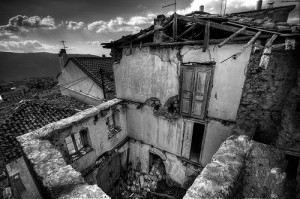Language came to me deeply when my paternal grandfather started to decline, when his body began to give in to the detritus of age, when I was faced with his loss. I’ve noted elsewhere that “our words, we hope, will ward off death. Looking into the eyes of our dead, standing and weeping over their bodies, holding their vesseled remains, watching their ashes circle to the earth—language rises to the tongue. We gather at viewings and funerals and wakes to sing and to pray, to embrace and to share memories, to clothe the spirit of grief in the language of praise. We write biographies, elegies, epitaphs, obituaries, sermons, odes. All in our attempts to address and to fill the absence left in our lives when someone or something we care about dies.” Because, as the title of a recent NPR story tells it, language, especially poetic language, can help us grieve, help us heal.
A recent blog post by Melissa Dalton-Bradford touches on this same idea with the sensitivity of someone who has nursed/is nursing the raw nerve we call loss. After talking about how language and poetry often come to her, Melissa talks about how she responded after her firstborn son’s accidental death. He was only eighteen:
The first Christmas after we buried our Parker, that brittle gunmetal winter of 2007, I was burning with poetry—poetry of outrage, of evisceration, of longing, of amazement, of revelation, of gratitude, poetry of The Void—but had no energy to print it out. [. . .]
I had no energy, in fact, to have a tree [. . .] that year. No energy for a single, thumb-sized decoration. I had no energy to face the boxes of baubles and mementos my oldest son had helped me open only twelve months earlier. I could not for the life of me—or for the death of my son—generate enough energy to face Christmas at all. As I considered the birth of the Savior, the heralded grandeur, the coming of the Son with glory round about and shepherds sore afraid and young innocent wide-eyed Mary cradling him, her splendid firstborn, I wanted to wail at the top of my lungs, “But you will lose him, Mary! You. Will. Lose. Him!!”
But I had no energy for wailing.
I did have energy, though, to write the following poem.
And, O!, what energy Melissa’s poem conveys. Circling The Void, she broods like a dove and ruptures into such immaculate wor(l)ds.
In order to convey the full energy of the poem and because this formatting is, as Melissa says, “peculiar” and “necessary” to our reading of the poem, I’ve embedded the properly formatted version as it appears in the anthology.


Pingback: This Week in Mormon Literature, July 7, 2012 | Dawning of a Brighter Day